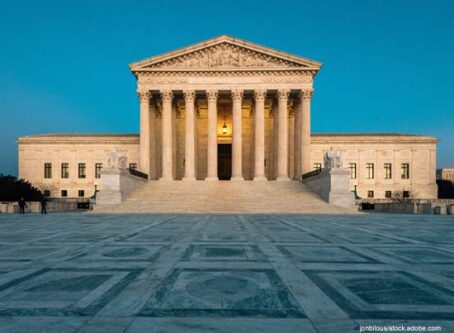OOIDA plans to appeal court’s decision in sleep apnea case
The Owner-Operator Independent Drivers Association said it plans to appeal a court’s decision to dismiss its lawsuit that alleged the FMCSA bypassed the rulemaking process in order to regulate obstructive sleep apnea.
The U.S. Court of Appeals for the Eighth Circuit heard oral arguments on Nov. 15 and dismissed the case in January.
“We don’t agree with the ruling, and we also think it runs counter to decisions made in other appellate courts,” said OOIDA Acting President Todd Spencer. “The negative consequences are that the supposed sleep disorder screening guidelines that were added to the regulations would be regularly practiced as they have in the past. It basically makes it to where drivers can be held hostage for ransom when it comes time to get a physical.”
The Eighth Circuit ruled that OOIDA’s case “lacked standing.”
OOIDA’s lawsuit, filed in April, alleged that the FMCSA slipped regulations regarding sleep apnea into a 2015 final rule that required the agency’s certified medical examiners to use a new medical form. OOIDA argued that the FMCSA incorporated into the Code of Federal Regulations an Appendix A that the agency didn’t include in its notice of proposed rulemaking.
Appendix A was a detailed list of medical criteria that included obstructive sleep apnea as one of the areas for medical examiners to review when deciding whether to medically certify a driver.
OOIDA argued the action wasn’t subject to public comment or a cost-benefit analysis.
“What is the problem with this going forward without the rulemaking process? It makes OOIDA members and other truck drivers face expensive and unpredictable standards,” said Paul Cullen Jr., an attorney for OOIDA. “These decisions can disqualify drivers from operating a truck.”
In October 2013, President Barack Obama signed a law that required the FMCSA to go through the formal rulemaking process and analyze the potential cost of sleep apnea requirements rather than simply issuing guidance to physicians, drivers and motor carriers. The legislation was supported by OOIDA.
The FMCSA and Federal Railroad Administration joined together to issue an advanced notice of proposed rulemaking regarding sleep apnea. However, the U.S. Department of Transportation withdrew the rulemaking in July.
OOIDA members have reported high costs for sleep studies.
“While most people in trucking have the perspective that the withdrawal fixed the problem, it didn’t,” Spencer said. “Withdrawing the rulemaking allows what had been going on previously to be followed and kept in practice. Without the rulemaking, the only way the problem can be resolved is through the courts in the manner we’re following.”
OOIDA said it’s fighting against the agency’s attempts to regulate drivers under the guise of guidance.
“For the last 17 years, petitioners have witnessed and experienced the driver medical certification process become more complicated, burdensome and expensive,” OOIDA wrote in its brief. “This has occurred as FMCSA has gradually revised and expanded the scope of its so-called ‘advisory’ medical criteria and then incorporated those criteria in the instruction and training of medical examiners.
“FMCSA has been able to advance this agenda without either exposing those requirements to the public comment and transparency requirements under the Administrative Procedures Act, or performing a cost-benefit analysis of them under the Motor Carrier Act.”









